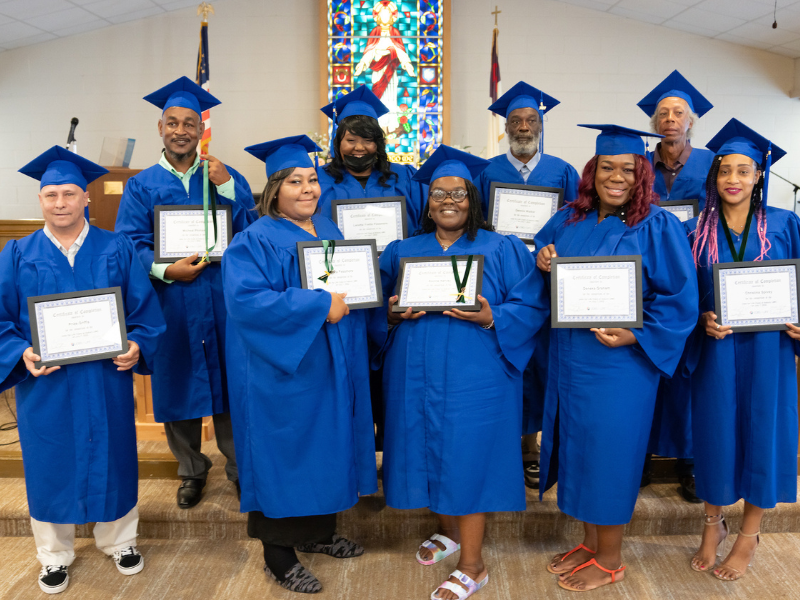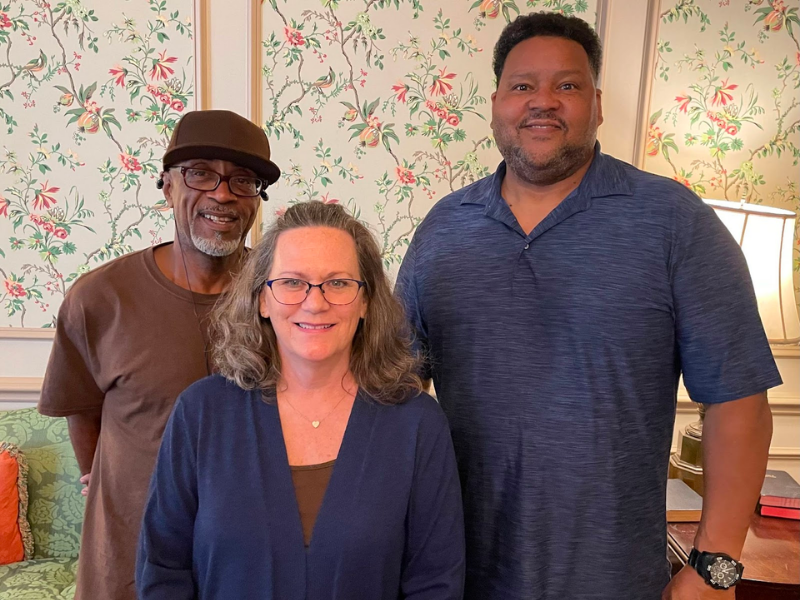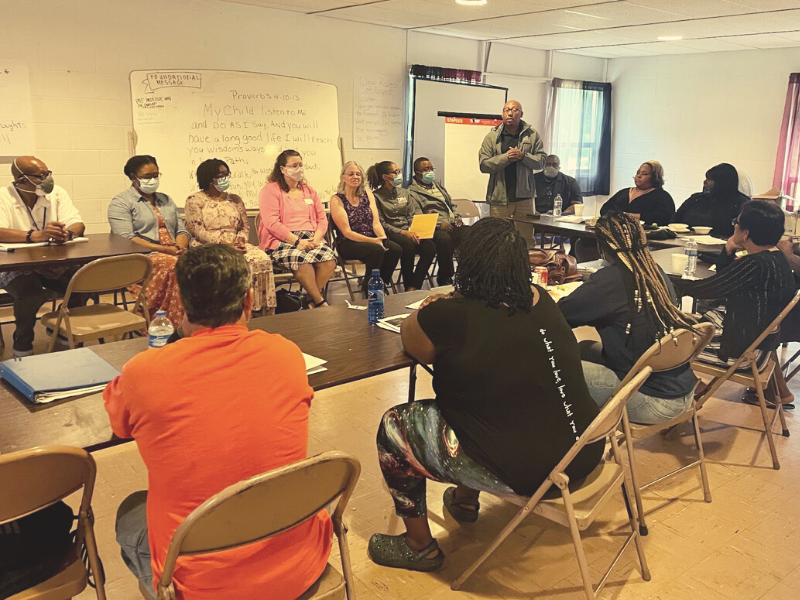High aspirations, hidden pain
Despite the trouble at home, Frankie was a high achiever, building a career in human resources and working for firms such as Monumental Sports and the Nick Cannon Foundation. She worked as a high-end event planner, where she regularly brushed elbows with celebrities and influencers.
When the family returned to Maryland, Frankie found herself heading up events for women who were victims of domestic violence. Meanwhile, at home, she was living in an abusive environment herself.
“At home, I never knew what was going to become of my peace or if he was going to get triggered,” Frankie says. “I was serving in the community as a social worker. I put on events for women, took them on yacht parties, and tried to boost their self-esteem. No one knew I was suffering so much.”
Finally, the situation in Frankie’s home came to a head, and she fled to Atlanta with her children. Her uncle lived in the city, and she planned to make a fresh start there.
But that fresh start didn’t come quickly or easily.
Seeking safety in Atlanta
Without a job or a place to live, Frankie was forced to seek out government assistance and transitional housing in Gwinnett County for her family.
“This was my first time being on the opposite side of transitional housing and understanding what the women who would talk to me [in the past] were going through,” she says. “It was strange to see the scarce resources, and to see women locked out of their hotels because the projects or community partners ran out of funding.”
Transitional housing in hotels and apartments can cost women $500 or more per week, and according to Frankie, the living conditions are unsafe and unsanitary. Worse, residents got a chilly reception from their case workers when they raised concerns.
“The water makes your skin itchy, and there are roaches coming up out of the sink and the drains,” Frankie says. “We were told we needed to boil our water to use it. It comes [out of the faucets] brown, and we had brown rashes on our bodies.”
While Frankie’s family was living in transitional housing, she experienced relentless prejudice, racism, and ridicule.
“I had people come to my hotel, and ask me if I was a prostitute because my daughter said we were living in a hotel at school,” she says. “Someone from [the Department of Family and Children Services] came to my apartment and asked if I left my children [alone] at nighttime. He asked me if I was a stripper.”
Forced to choose between assistance and higher income
While Frankie was waiting for available childcare and a pathway to affordable housing, she was forced to turn down a job placement that would have paid $70,000 per year. While she needed employment, she also needed the support from the government program. That was her ticket to a home she could afford, but she wouldn’t qualify if she took a new job that raised her income past eligibility requirements.
“I never thought it would come to this,” she says. “I hadn’t prepared financially; I spent through my savings because I was waiting on childcare.”
Frankie found herself trapped on what we call the Benefits Cliff — torn between taking steps toward a more secure future, but ultimately forced into making decisions that trapped her into long-term dependence on government benefits. Individuals and families who make over a certain amount of income per year are automatically struck from the list, and are no longer qualified for affordable housing, food support, or other government assistance.
“They want to see your pay stubs, your bank statements. They want to make sure you’re poor,” Frankie says. “If you have a car, they want to know what kind of car you’re driving and if you have insurance. They want to make sure there’s no possible way you can work a job.”
“If there are no daycare facilities within a 30-mile radius of where you place me in my hotel and I don’t have a car to take my child a city over, I’m not going to be able to get a job,” she added. “Who’s going to watch my child all day?”
Families in these transitional programs often find themselves stuck paying high bills while they await affordable housing. Frankie was forced to pay more than $2,000 per month for the hotel she and her children stayed in. Financially, staying put made no sense, but Frankie held on in hopes that affordable housing would come through.
Leaving transitional housing puts parents at risk of losing their children to CPS, particularly if they’re perceived as living out of their vehicle. On the other hand, getting a higher-paying job disqualifies them from further government and charitable support.
“It’s like a loophole to keep you destitute,” Frankie says.
Dreams for a brighter future
After three months in transitional housing, Frankie was able to connect with BETTER WORK Gwinnett. Her case worker, Luisa, formed a close connection with her, encouraging her and checking in on her as she prepared for a fresh start.
“We lost our jobs during the pandemic,” Frankie says, “and that was the time when we needed encouragement and to find our way again — laugh again. Ms. Lusia provided a lot of that. She called me every day just to check on me.”
After experiencing the frustration, humiliation, and helplessness of transitional housing herself — including witnessing another mother abandon her children when her time at the hotel was up — Frankie wants to help other women in similar circumstances. She hopes to go to law school to provide legal aid to other families who have suffered at the mercy of the system.
“We need to get them their GEDs and diplomas. Start them off as home health aides, CPAs, LPNs, RNs, physician’s assistants, or doctors,” Frankie says, “But no one’s willing to help. They just want to enable their programs to get money for housing us. After that, you’re out on the street like a dog.”
As for Frankie, she’s working with Luisa to get back into the human resources field, and considering a move to a more affordable city in south Alabama.
“I’m not going to sit and wait for anyone to take care of me,” she says. “For the women who don’t have options, I’m going to school to fight for them.”













